How to buy a gaming PC
Want to buy a gaming PC but don’t know where to start? Here are the basics.
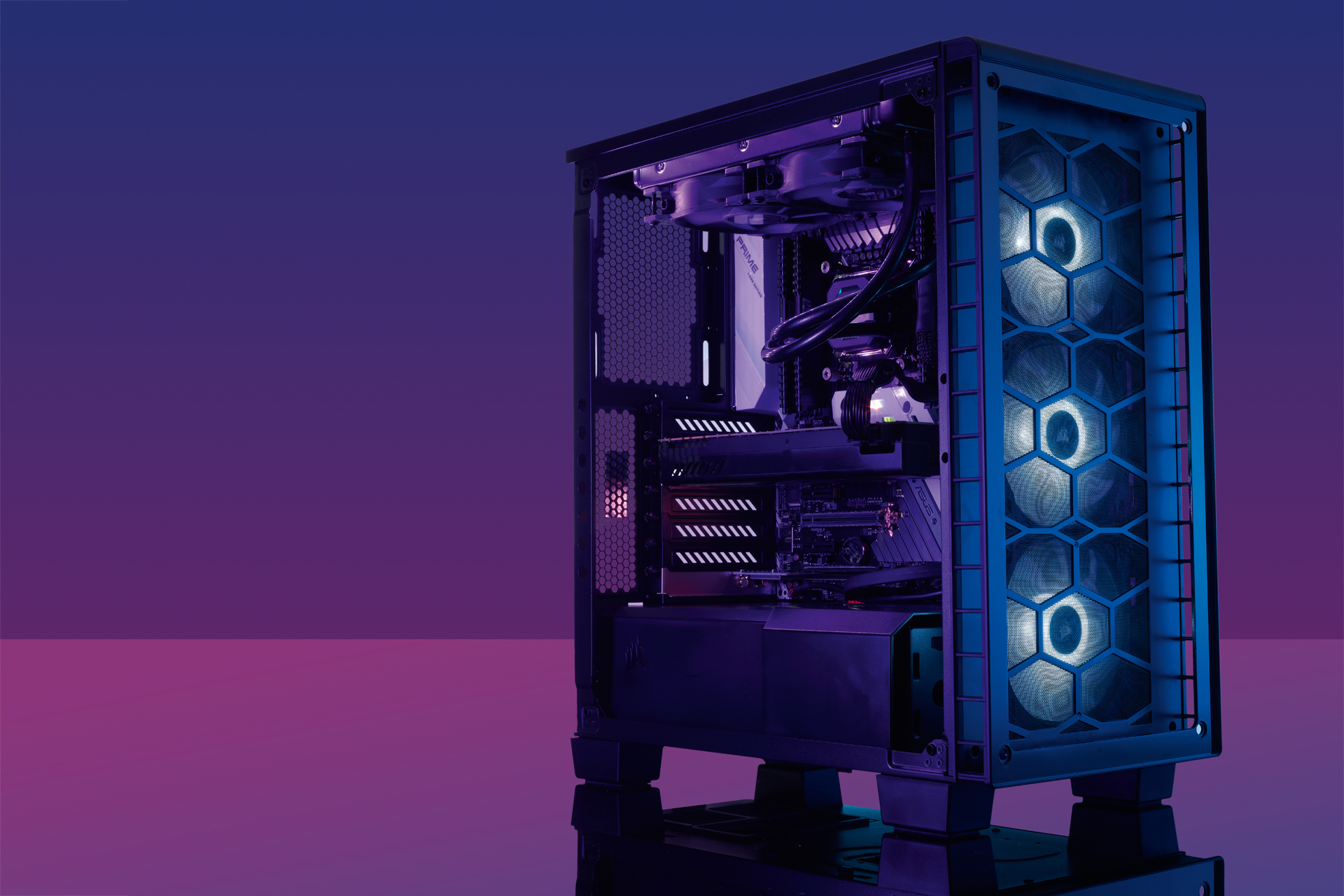
Being a PC gamer is a wonderful thing. There’s the seemingly endless supply of games, which stretch from one-man-band browser games and independently developed curios, through to blockbuster action-adventures and multiplayer shooters.
Then there’s the hardware, which can be as flashy and as colourful as a hot-rodded boy racer’s car or as subtle as a briefcase. Most important of all, there’s that warm fuzzy feeling that comes from rubbing your console-owning friends’ noses in your PC’s far superior performance.
A great gaming PC lets you crank the graphics settings in games and push ludicrously high frame rates (upwards of 100 frames per second) for super-sharp, super-smooth and super-responsive gameplay.
Whether you buy a PC or decide to build one, there’s a lot of different hardware to choose from. Fortunately, once you know the basics, buying a PC is easy.
What do you play?
Before you start, ask yourself: “what do I want my PC to do?” If you’re into esports games like Dota 2, League of Legends, or Counter-Strike: Global Offensive, then perhaps you don’t need to buy a super-powerful gaming rig.
Likewise, if you’re planning to play in 4K (which remains a hugely demanding task), stream your games over Twitch and do a spot of video editing, a budget-minded machine might not be the best option. And then there’s the age old question: desktop or laptop?
CPU, GPU, Memory
You could spend a lifetime diving into the details of each and every component in a PC, but for the most part there are just three you need to look out for: CPU, GPU and memory (with an honourable mention going to storage). Of those, the GPU (graphics processing unit, or graphics card) is the most important part.
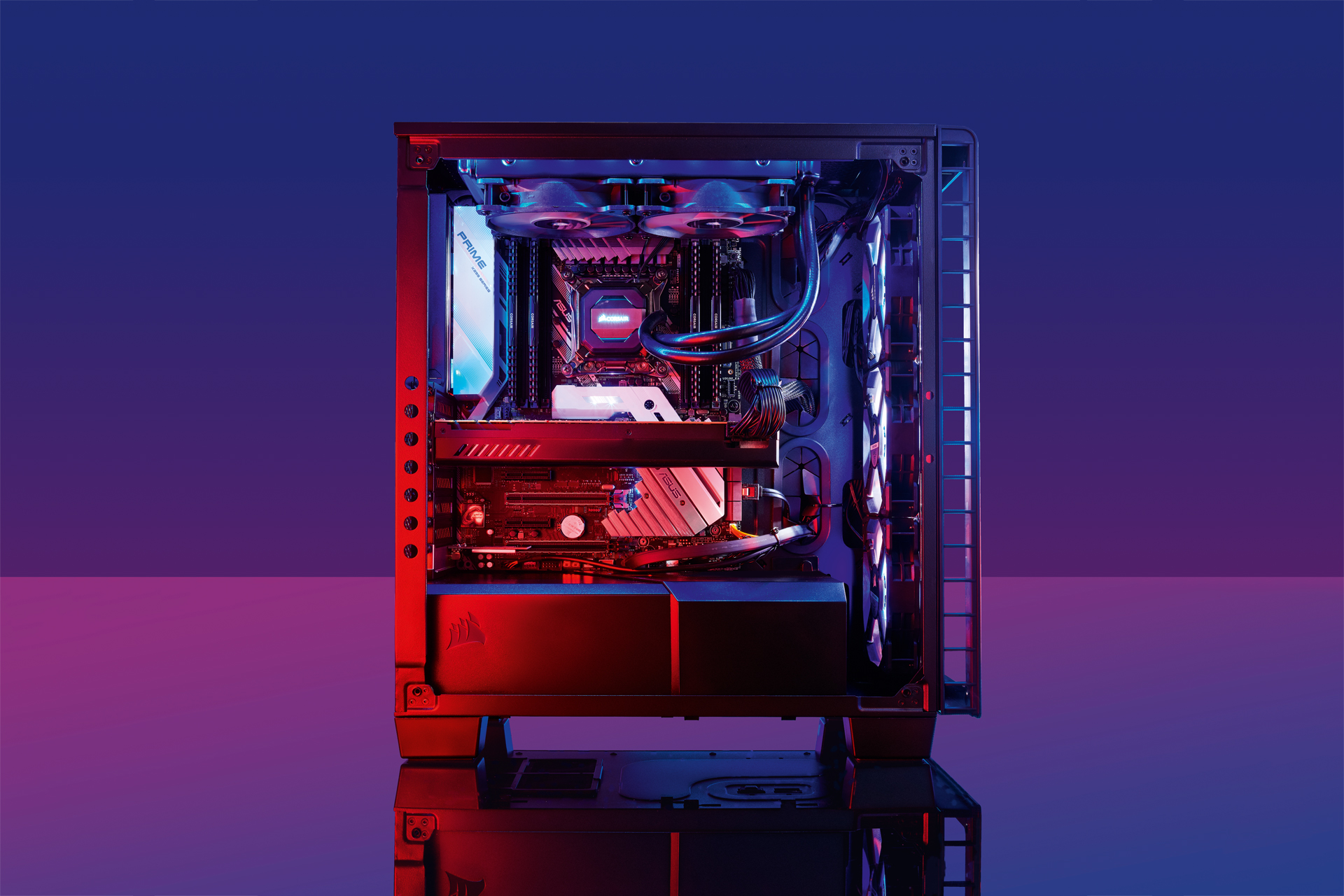
A respectable CPU (central processing unit or processor) such as a four-, six- or eight-core model from Intel®’s i5 and i7 range or AMD’s Ryzen 5 and Ryzen 7 is a good place to start. Consider 8GB of memory a minimum too. And if you can stretch to solid state storage (an SSD) all the better for responsiveness and load times.
But opting for more memory or a more expensive CPU doesn’t always make for a better gaming experience, even if they do improve multitasking and content creation. Most gaming performance comes from the GPU.
Dedicated Graphics
For esports games, games that don’t depend on flashy visuals or high frame rates, or you don’t mind playing blockbuster titles with the settings toned down, stick to the £600 to £1000 price bracket. Make sure that whatever PC you buy has a dedicated graphics card, rather than one that’s integrated into the CPU. The Nvidia GeForce GTX 1050 and AMD Radeon RX 560 are great places to start.
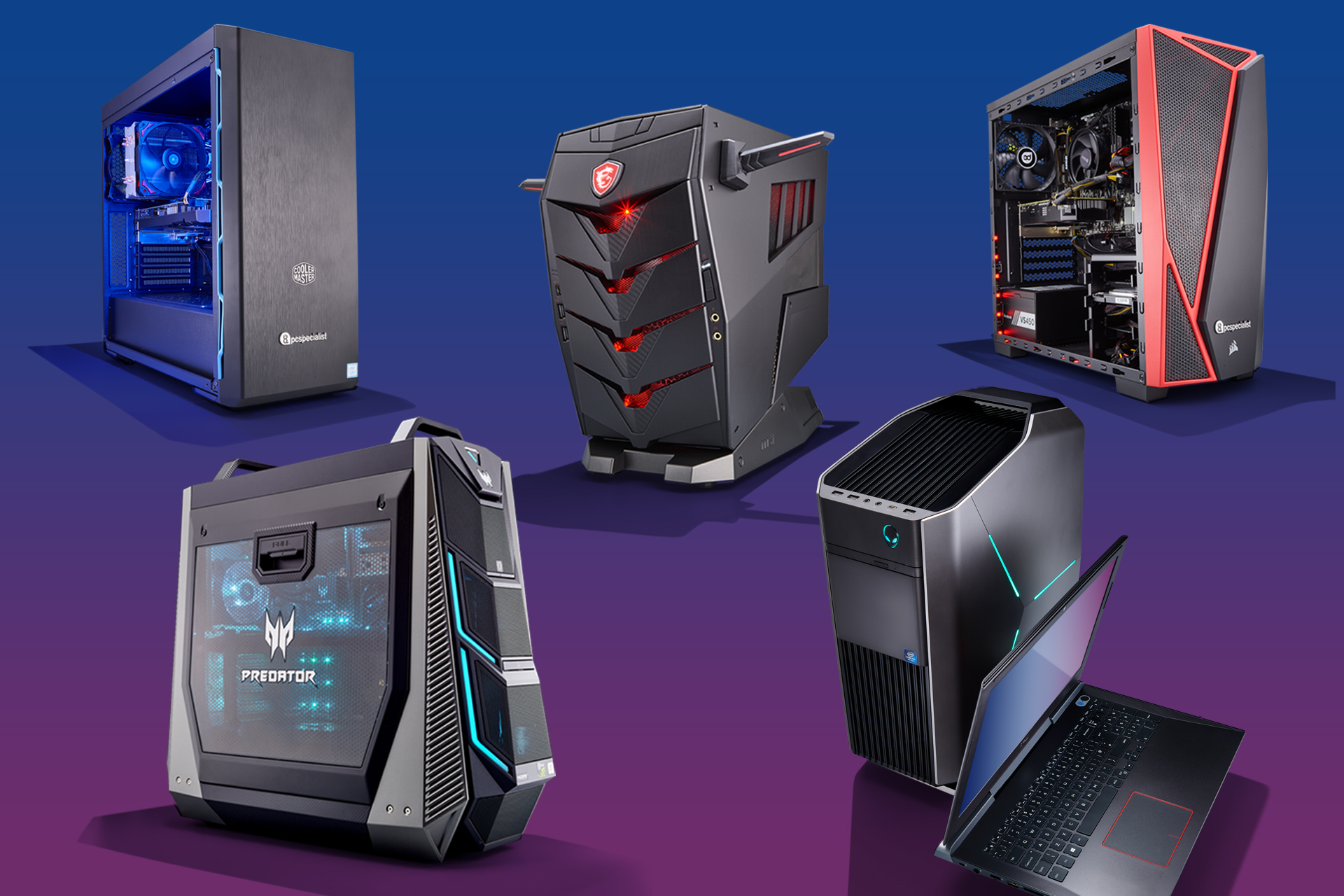
For demanding games, high frame rates and high resolutions like Quad HD and 4K, you typically need to spend over £1000. At this price point, expect CPUs with more than four cores, along with graphics cards like the Nvidia GTX 1060 or AMD RX 570. Both allow you to crank the visual settings in games for a better-than-console experience at Full HD 1080p resolution at 60 frames per second.
For even higher frame rates (100fps+) and 4K, look out for Nvidia’s brand new RTX 2080 and RTX 2080 Ti. Both deliver breathtaking performance at Full HD and Quad HD resolutions. The RTX 2080 Ti goes even further. It’s the first graphics card from Nvidia to consistently surpass 60fps at 4K resolution with all the settings turned up.
Get all the latest news, reviews, deals and buying guides on gorgeous tech, home and active products from the T3 experts

For 25 years T3 has been the place to go when you need a gadget. From the incredibly useful, to the flat out beautiful T3 has covered it all. We're here to make your life better by bringing you the latest news, reviewing the products you want to buy and hunting for the best deals. You can follow us on Twitter, Facebook and Instagram. We also have a monthly magazine which you can buy in newsagents or subscribe to online – print and digital versions available.
-
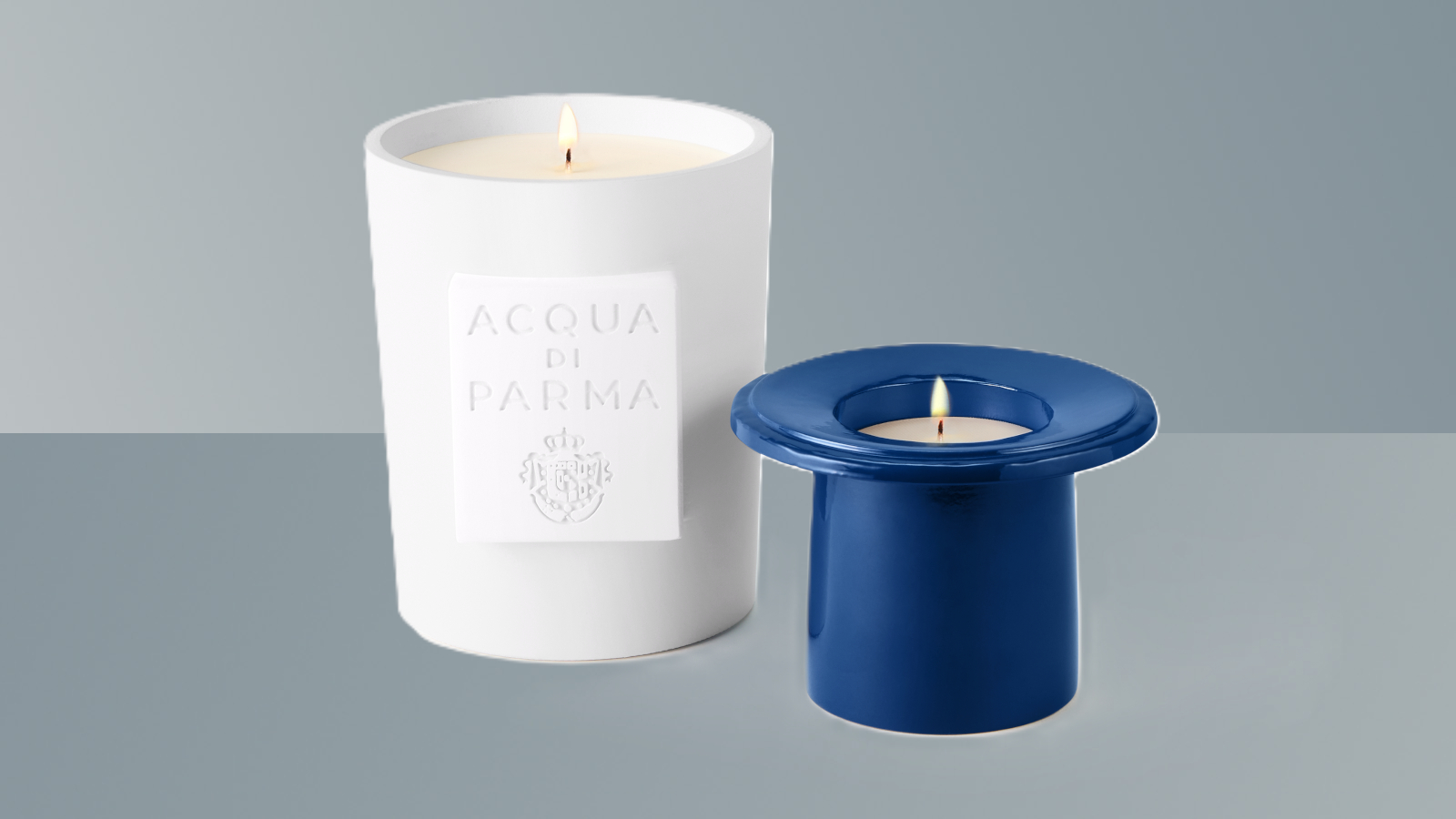 Acqua di Parma's new release isn't a men's fragrance – but its unique design still caught my eye
Acqua di Parma's new release isn't a men's fragrance – but its unique design still caught my eyeThese two-in-one candles are a delight
-
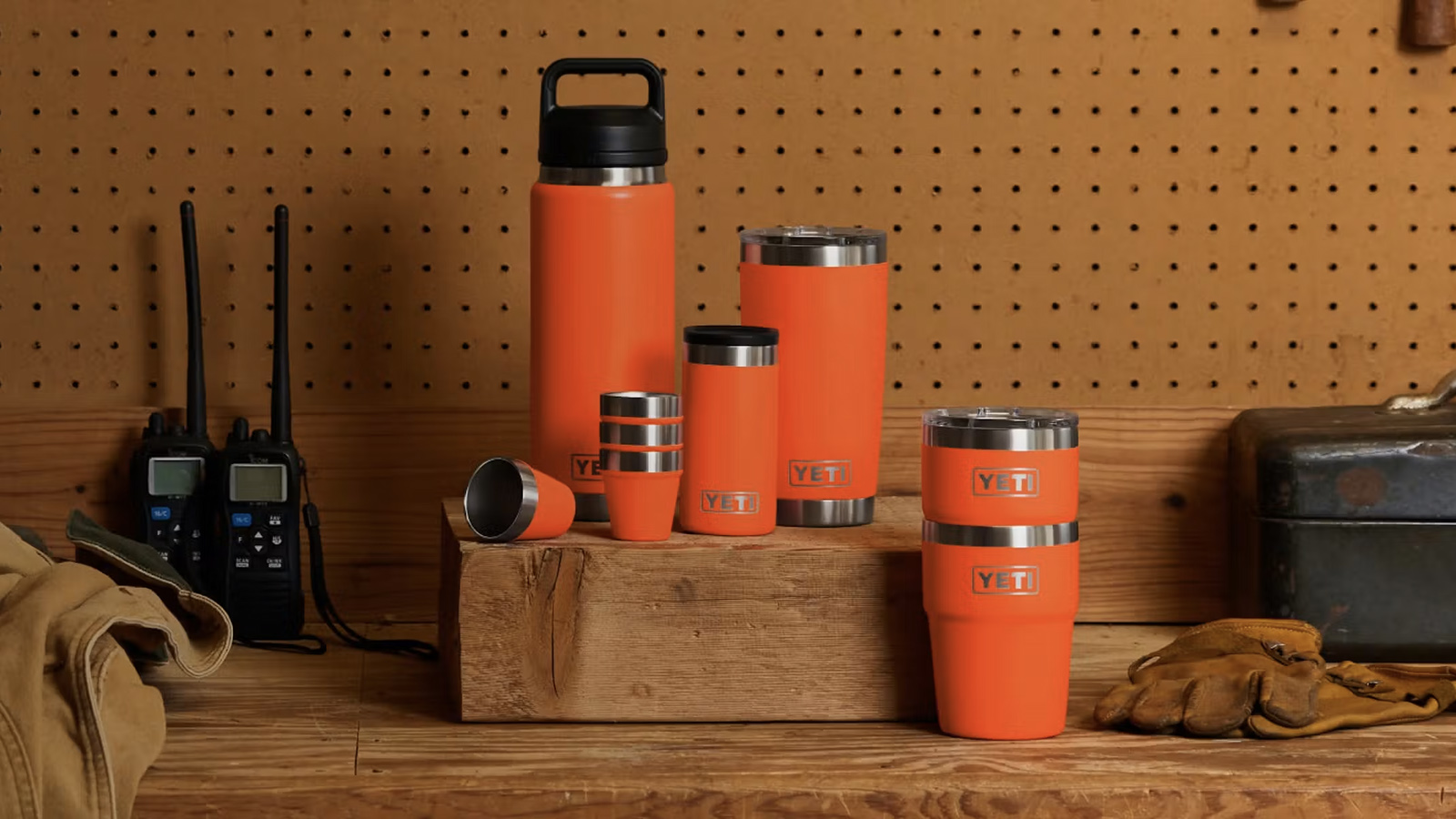 YETI moved beyond coolers, and it seems to be the smartest move the brand made in years
YETI moved beyond coolers, and it seems to be the smartest move the brand made in yearsStrong drinkware sales are funding YETI’s push into bags, outdoor gear and global markets, with new platforms like Skala hinting at what comes next
-
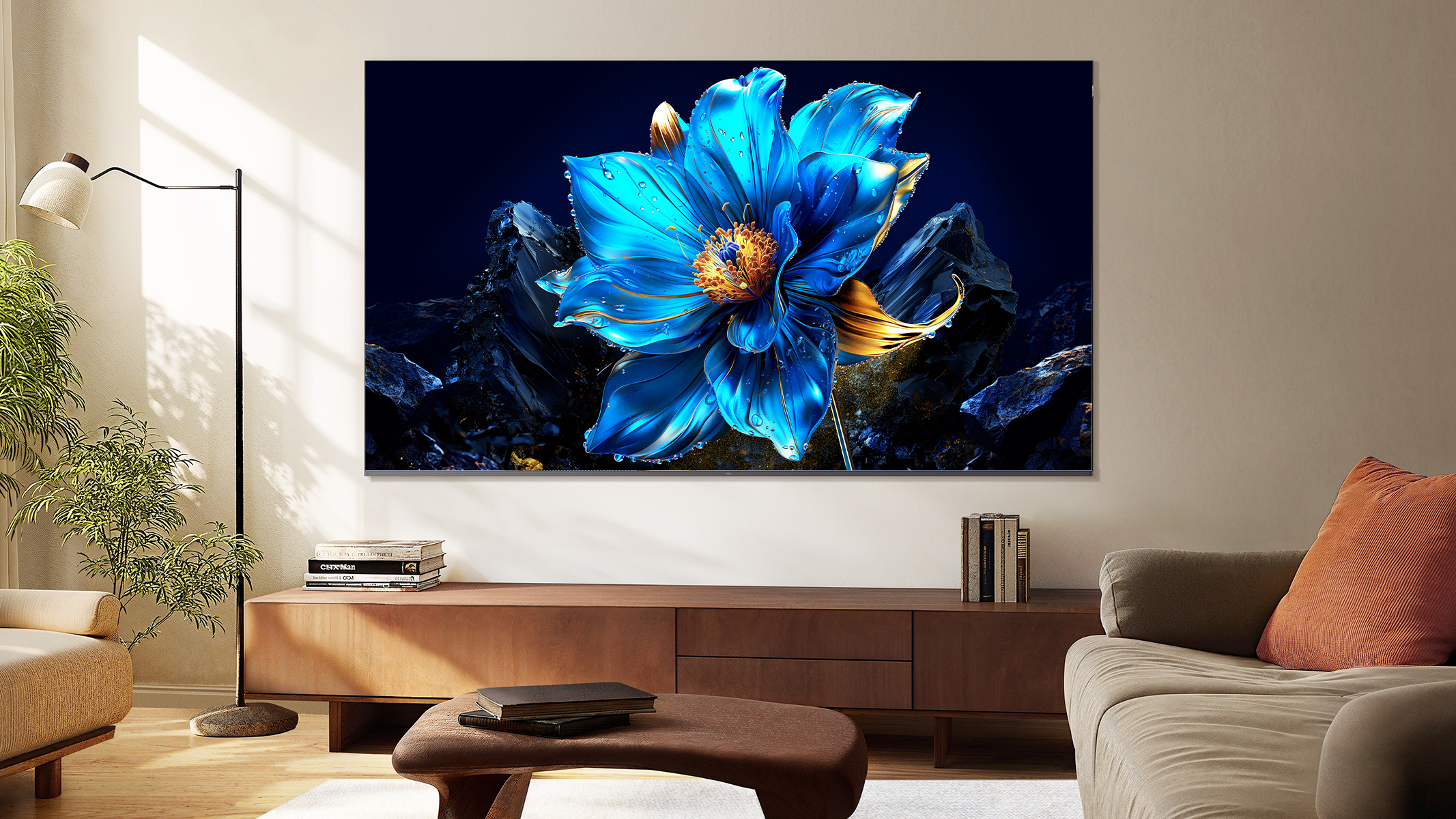 Think your room is too small for a big TV? Think again!
Think your room is too small for a big TV? Think again!Now’s the time to supersize your set with a premium QD-Mini LED TV upgrade
-
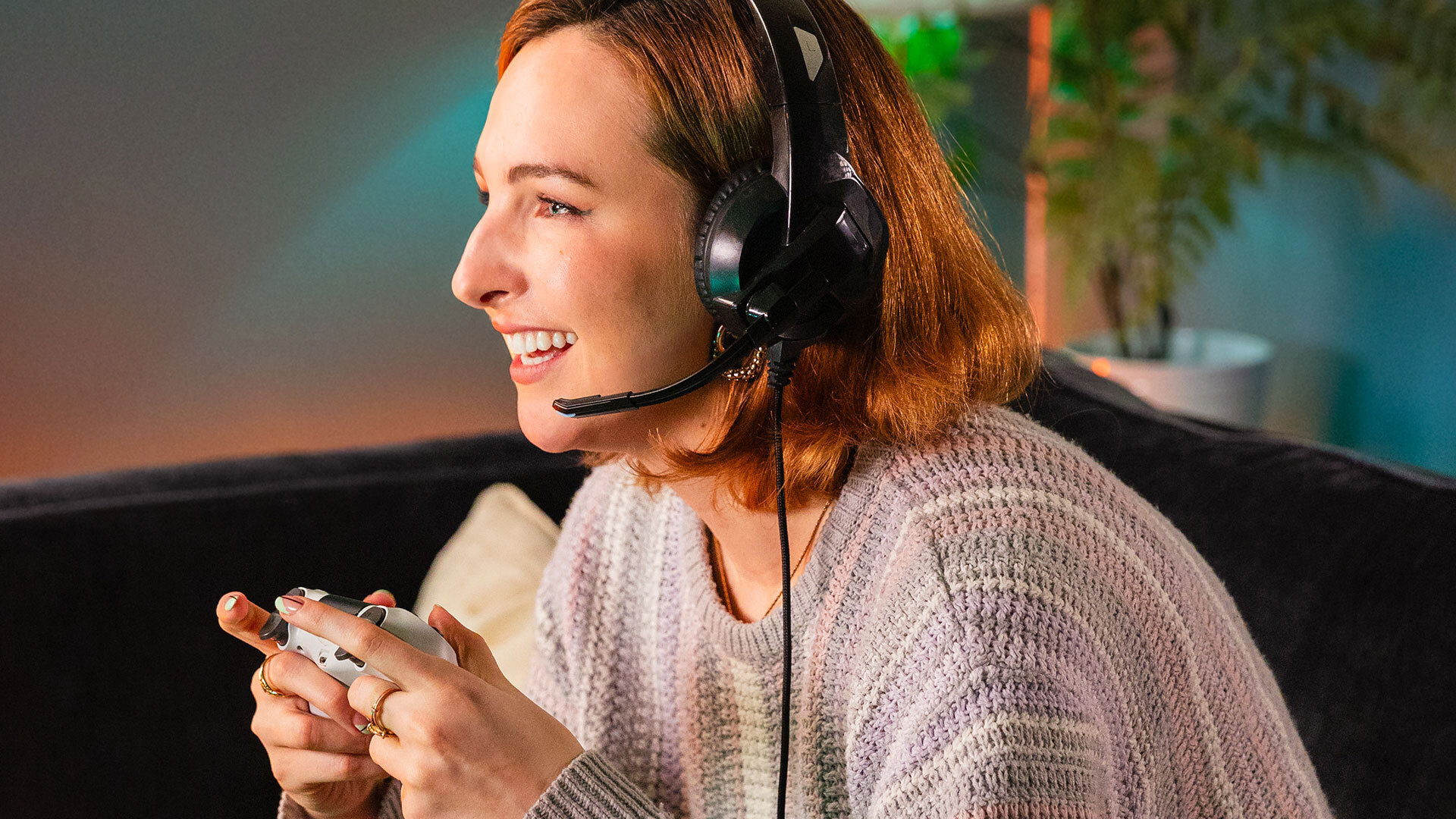 Want to level up your gaming? These are the best consoles and games for every type of player
Want to level up your gaming? These are the best consoles and games for every type of playerChoose your next gaming adventure with this handy guide
-
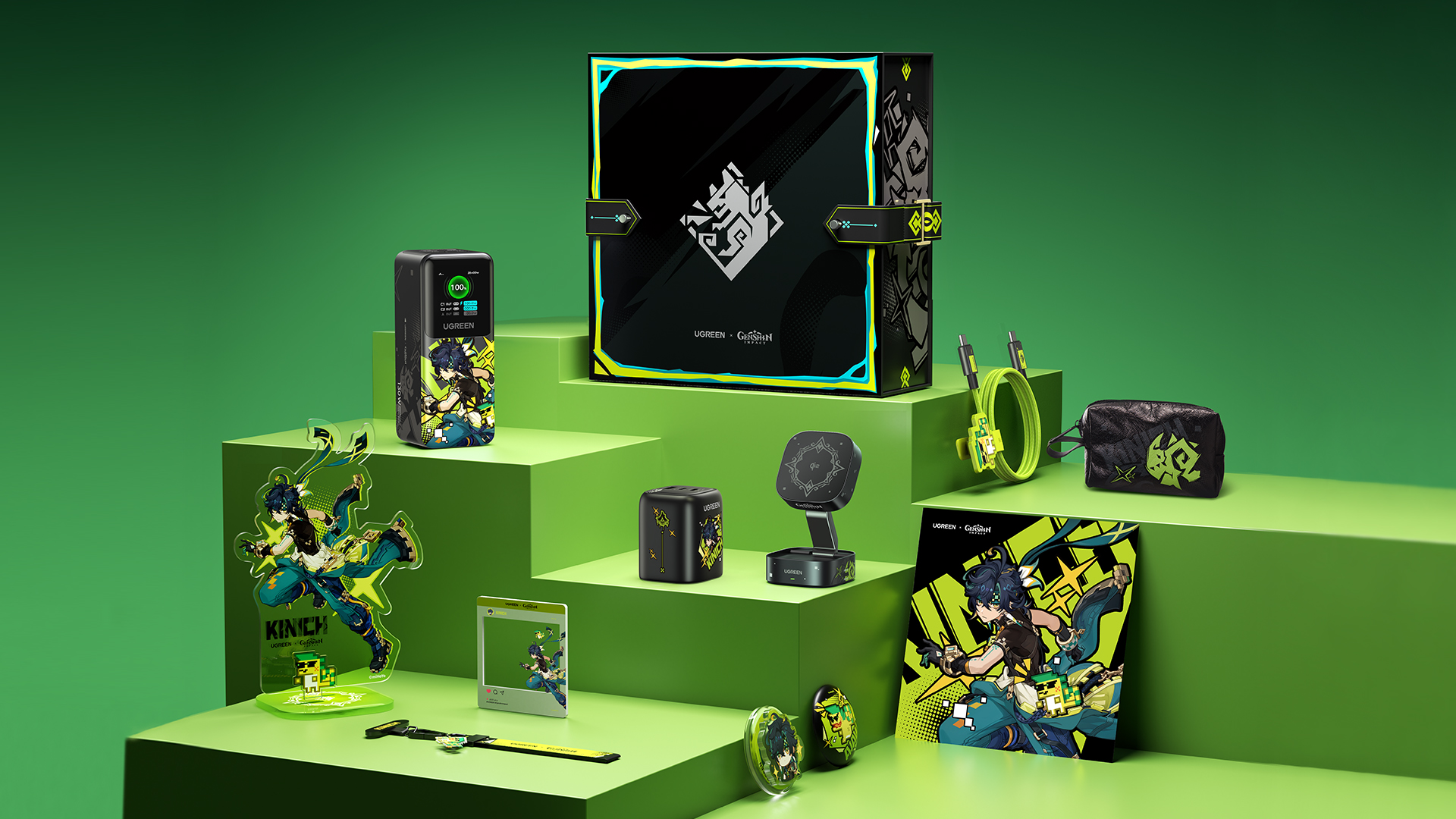 UGREEN x Genshin Impact: power up your gaming journey
UGREEN x Genshin Impact: power up your gaming journeyAnd grab the chance to win a limited edition UGREEN x Genshin Impact Kinich Collectible Gift Box
-
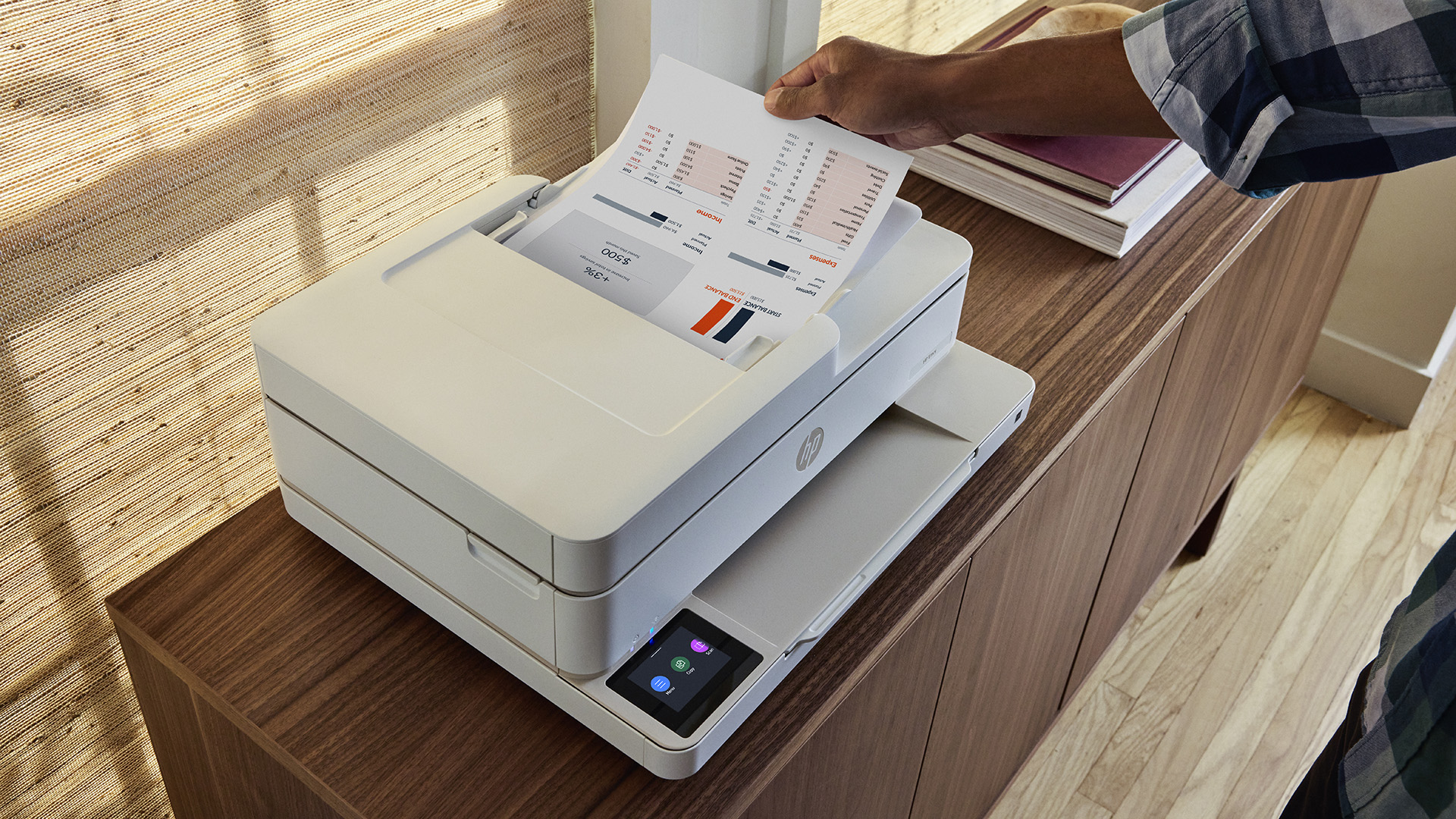 5 Surprising Ways a Home Printer Can Save Your Sanity (and Your Family’s!)
5 Surprising Ways a Home Printer Can Save Your Sanity (and Your Family’s!)Modern life is hectic, but a home printer can help. Discover how HP’s eco-friendly, intuitive machines can simplify your household
-
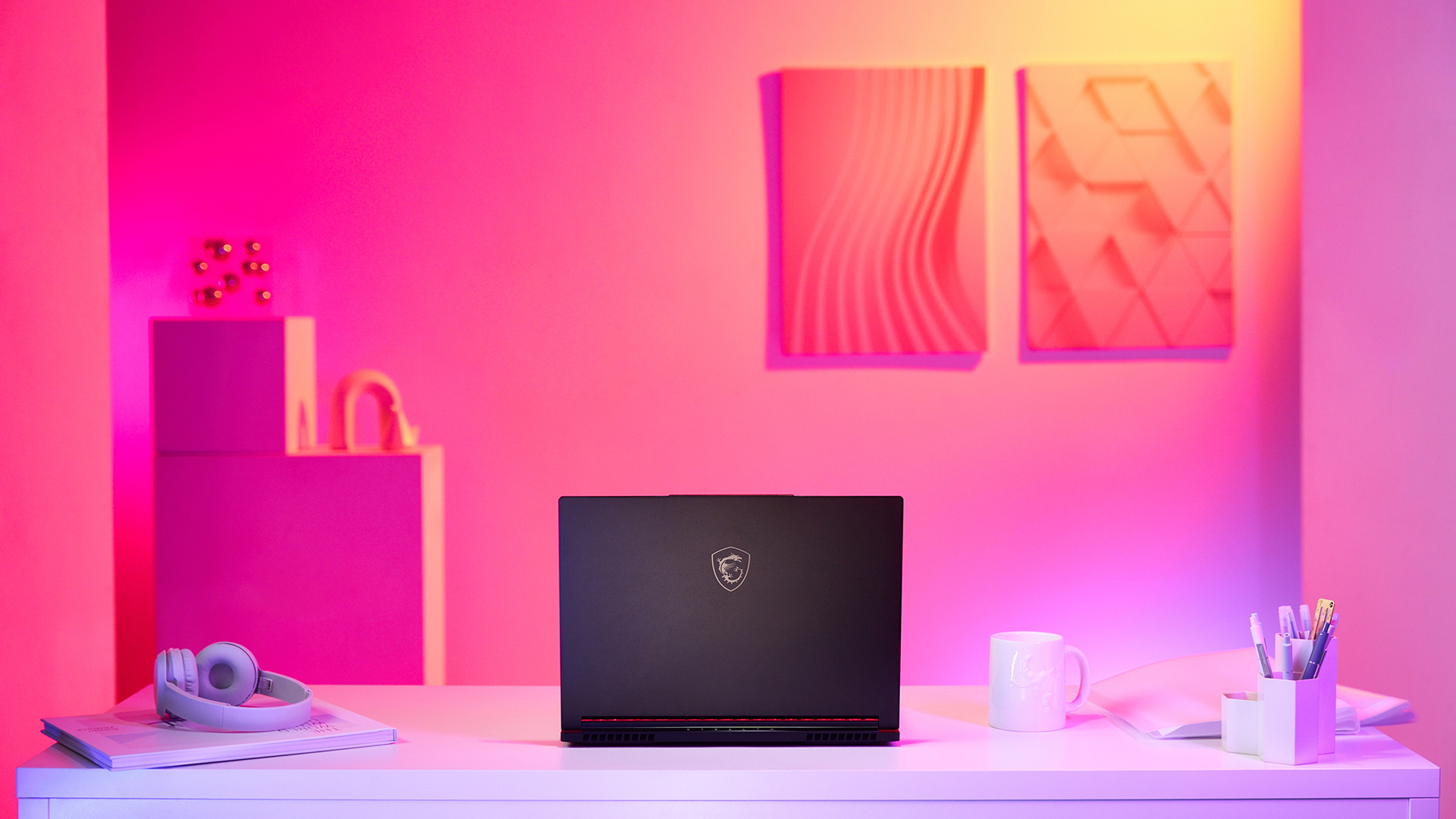 The Gamer’s Survival Guide: Dominate every challenge with the MSI Stealth A16 AI+, powered by the AMD Ryzen™ AI 300 Series Processor
The Gamer’s Survival Guide: Dominate every challenge with the MSI Stealth A16 AI+, powered by the AMD Ryzen™ AI 300 Series ProcessorMaster your gaming and creative battles with the MSI Stealth A16 AI+, featuring the AMD Ryzen™ AI 300 Series Processor, a portable powerhouse packed with cutting-edge AI technology, sleek design, and unstoppable performance
-
 Why the HUAWEI WATCH GT 5 will steal the show under your tree this Holiday Season
Why the HUAWEI WATCH GT 5 will steal the show under your tree this Holiday SeasonUnder the tree or on the wrist, the HUAWEI WATCH GT 5 shines this Christmas
-
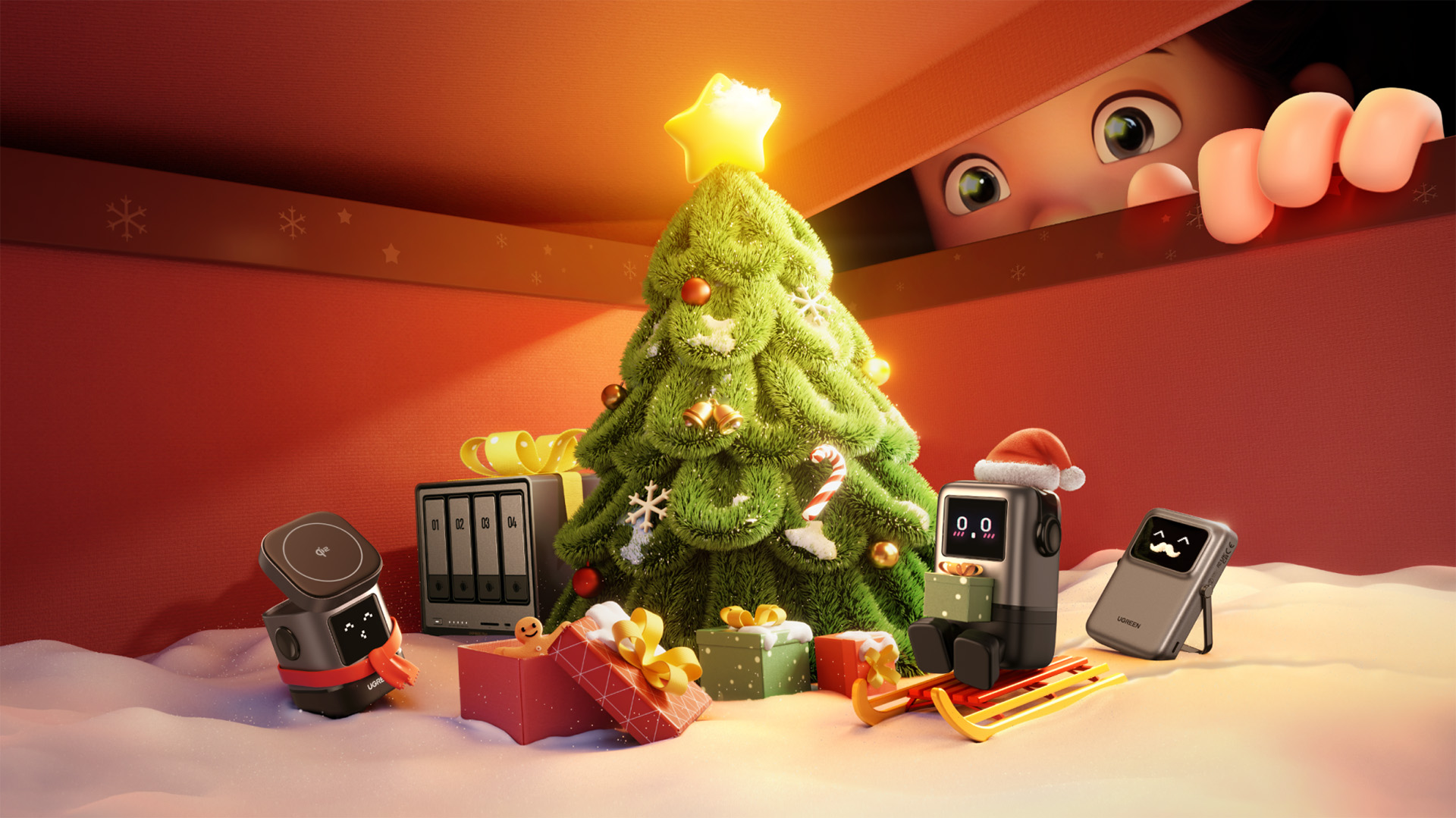 Unwrap the Joy of the Holidays with the UGREEN Uno Series
Unwrap the Joy of the Holidays with the UGREEN Uno SeriesFrom family movie marathons to holiday road trips, the UGREEN Uno Series brings festive cheer and seamless tech solutions to power your most magical moments this Christmas.
-
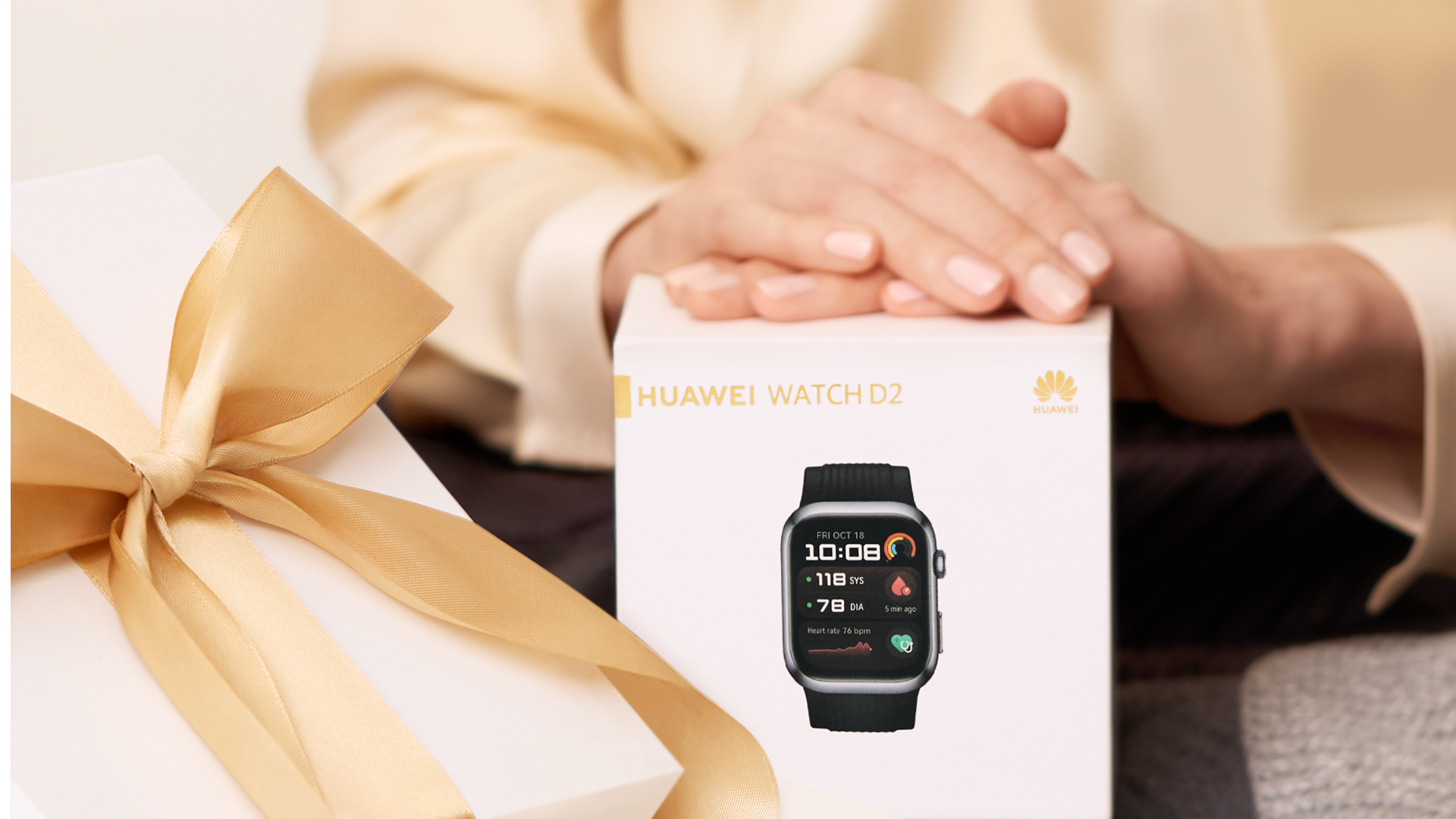 Tech the Halls: Holiday Shopping Made Easy with These Picks from Huawei
Tech the Halls: Holiday Shopping Made Easy with These Picks from HuaweiGive the gift of innovation this Christmas with Huawei
